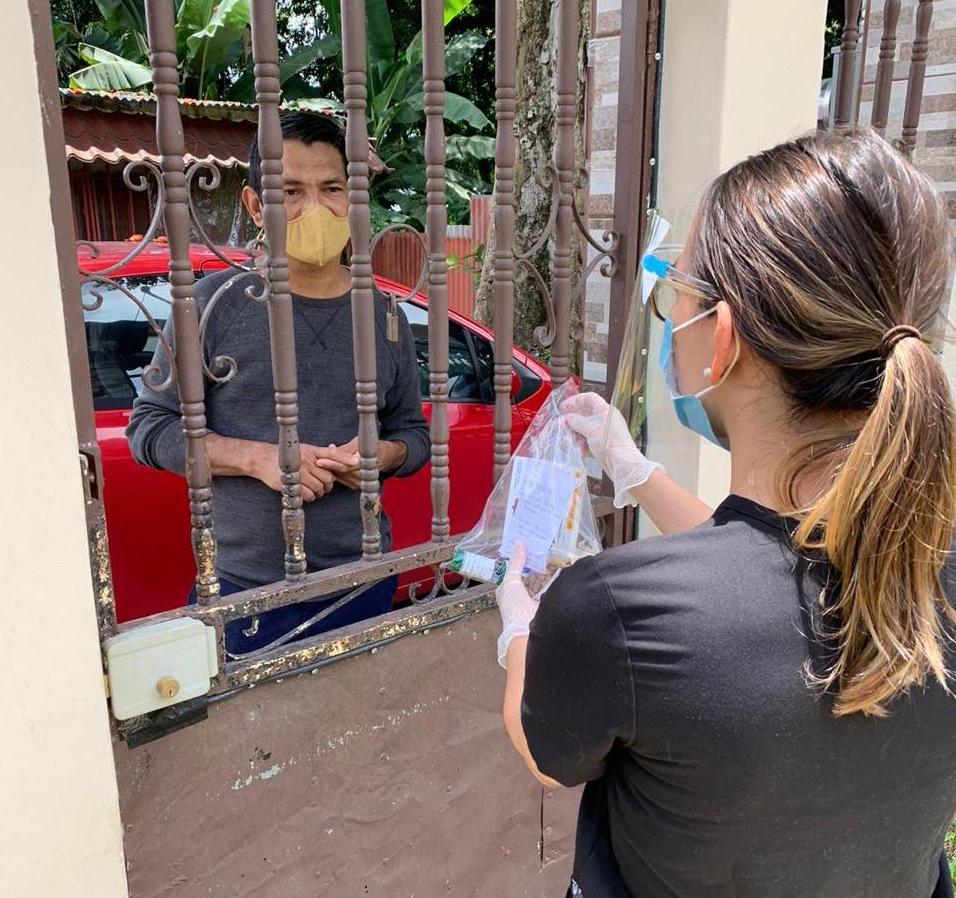Foundation for International Medical Relief of Children (FIMRC)
Virtual Internship
Final Report: Foundation for Medical Relief of Children (FIMRC)

This summer, I completed an 8-week virtual fellowship with the Foundation for International Medical Relief of Children (FIMRC). FIMRC is a nonprofit global health organization with the mission of bringing healthcare to medically underserved communities around the world. The goal of my fellowship was not only to learn about the work that FIMRC does but also to support projects occurring at FIMRC sites. My fellowship was split into three main categories that would be completed continuously throughout the eight-week period.
The first portion of the fellowship included learning modules on the online platform, Canvas. Each week of modules was dedicated to providing details about one of the nine international FIMRC sites. Additionally, the modules for each week provided information about a specific global health topic like social determinants of health or mental health. These learning modules included videos with FIMRC field operations managers and staff, readings, presentations, and case studies. The readings for the week pertained to the chosen global health topic and often included research summaries. Following the article readings, interns watched recorded videos where field operations managers would connect the topics to their global sites. Weekly presentations described the work of each site, as they differed based on the community’s needs. Finally, each week I analyzed a medical case study pertaining to the specific FIMRC region. The case studies were reviewed with doctors from the sites.
The second aspect of my internship consisted of live clinical observation sessions. I attended daily clinical sessions concerning psychology and pharmacy. All clinical observations took place in Costa Rica and were conducted in Spanish. Although some students were proficient in Spanish, each session was translated into English, and the FIMRC staff helped students understand the necessary terms. During the psychology observation sessions, the main psychologist from the Costa Rica FIMRC site completed a counseling session with a refugee. Prior to the counseling session, the psychologist explained the often complex and traumatic backgrounds of the patient. After the sessions, the psychologist would explain the methods she used to help the patient and answer any questions from interns. The pharmacy observation sessions were more interactive in that students were able to directly communicate with Costa Ricans by virtually delivering medication. The head of the pharmacy would share a sheet that listed all of the medications that were necessary for the patients for each day. Volunteers, like myself, would prepare to deliver the medication by writing the instructions for each form of medication (number of pills per day, time between pills, purpose of medication, etc.) in Spanish. Following this preparation, a volunteer would communicate with the patient over Zoom to deliver and provide instructions for each form of medication.
The final component of my fellowship experience was a voluntary project to directly support a FIMRC site. I completed the Portawawa Pamphlets project that supports the Huancayo, Peru site. I created forty pamphlets with another volunteer to provide information about each week of pregnancy to women with minimal health education. Each pamphlet was in Spanish and included FIMRC contact information, information about the baby’s development, details concerning the mother’s bodily changes, and diagrams of the baby and mother. My project manager met with me every week to review the pamphlets and request any changes. When I completed the project, she expressed her gratitude for my work because maternity information was lacking for mothers at the Huancayo site.
My fellowship experience with FIMRC was very successful. I am interested in pursuing global health in the future, so learning about the FIMRC sites and meeting field operations managers at each site was very useful. Additionally, clinical observations gave me a glimpse at what international health work looks like. My greatest success and gratification came from my Portawawa Pamphlets volunteer project. My project manager commented that the work I completed was beyond what she expected for the project. However, the greatest satisfaction came from knowing that simple information pamphlets would significantly improve maternal health at the Huancayo site. Providing health education is one of FIMRC’s main goals, so I know the time I spent contributing to the Portawawa Pamphlets project was well spent.
I benefited most from the live observation experiences. Observing the work of the psychologist in Costa Rica helped me understand what my future could look like if I pursue a career in counseling. Another significant benefit of my fellowship was the exposure to Spanish in the field of health. I am studying Spanish in hopes of becoming fluent before graduating. Speaking to FIMRC staff and Costa Rican patients in Spanish was a valuable experience. Completing my volunteer project in Spanish exposed me to new medical terms and certainly improved my fluency. The fellowship was a mutually beneficial experience where I not only learned from FIMRC staff but also assisted with their ongoing projects. I was able to support FIMRC by providing insights during pharmacy and psychology clinical observation sessions.
I learned a lot from my experience with FIMRC. Although most of the information from the modules specifically focused on FIMRC’s sites, there were many topics that apply to general global healthcare. The case studies were especially informative because managers explained how specific cases would be handled with limited medical supplies. Throughout my fellowship, I gained simple skills like understanding how to use Canva to make pamphlets and how to translate medical abbreviations. However, the most significant skills I gained include communicating with native Spanish speakers, providing advice to struggling refugees, and navigating healthcare in low-resource settings. Speaking with field operations managers and asking about their career paths gave me a perspective on how my career path could look if I pursue global health.






